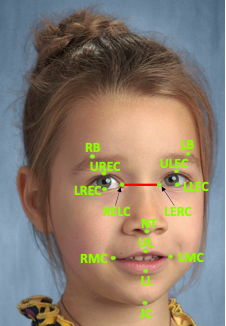Projects
Advancing Digital Mental Health using LLMs: Evaluating and Training LLM-Based Diagnostic Models
Dr. Washington is happy to collaborate with teams to explore the frontiers of digital mental health through the lens of large language models (LLMs). We are interested in developing and evaluating LLMs for mental health screening and intervention, and designing diagnostic classifiers that integrate text, audio, and/or video inputs. This work involves creative prompt engineering, fine-tuning strategies, and/or rigorous evaluation frameworks to maximize clinical relevance and fairness. Ideal for students, postdocs, residents, fellows, or staff interested in interdisciplinary work at the intersection of AI, psychiatry, and digital health.
Technology-Assisted Motivational Interviewing (TAMI) Chatbot: A Generative AI Tool to Promote Readiness to Change for Smoking Cessation
ChatGPT served as a base LLM. It was modified using iterative prompt engineering then trained to do motivational interviewing using thousands of real world therapy transcripts and all available motivational interviewing scoring rubrics. The work was done in collaboration with Open Health Network and funded by the California Tobacco-Related Disease Research Program (T34IR7967; PI: Satterfield). The final model includes 3 nested agents - one that delivers motivational interviewing, one that educates users on evidence-based smoking strategies, and one that assesses and builds user confidence in their ability to successfully quit. We are currently exploring a “hidden” chatbot that evaluates the performance of the user-facing agents.
Standardized Measurement of Facial and Vocal Affect Production
We are developing a automated, remotely accessible, standardized measure of ability to communicate basic emotions through facial and vocal expression.

Measurement of Insomnia-Related Cognitive Dysfunction Using Naturalistic Language Processing: A Novel Approach
Insomnia is a highly prevalent disorder and is associated with a number of adverse health outcomes, including increased risk of cardiovascular disease, cerebrovascular disease, metabolic dysfunction, neurodegenerative disease, and cancer. Curiously, despite frequent cognitive complaints among those suffering with ins omnia, literature supporting objective cognitive weaknesses among those with insomnia remains scant. Among a host of methodological concerns with previous studies, use of traditional neuropsychological measures and associated lack of sensitivity to modest neurocognitive dysfunction remains a concern. This study is the first to employ a novel method of cognitive assessment known as naturalistic language processing (NLP) to detect potential subtle cognitive impairments in a neurologically intact but potentially cognitively compromised insomnia population.